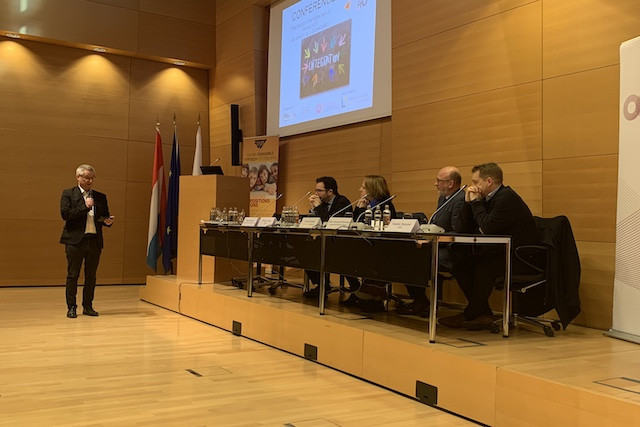These were among the ideas discussed during a lunch debate organised by immigrant workers support association Asti on Wednesday.
Measuring the effectiveness of integration policy is difficult, Liser economist Frédéric Docquier explained. He cited the example of the contrat d’accueil et d’intégration (Cai), a voluntary measure offering free language and civics classes over a two-year period.
“It’s voluntary, which means only the most motivated will sign up. Will they perform better because the policy was more effective or because they were more motivated from the start?” he said.
Scandinavian countries offer some data on the most effective measures for integrating foreign nationals. Citing their findings, Docquier said that civic training worked well when proposed a short time after a person’s arrival into a new country. Similarly, early access to language lessons was shown to be effective, unless the duration was too short. He said that based on these studies “the optimimum number of hours of language lessons should be between 300 and 1,000 hours.”
Integration index
Both measures had mid to long-term benefits but for the short-term he said that coaching was found to be most productive and beneficial. In addition to the Cai, Luxembourg already offers heavily subsidised language classes at the Institut National de Langues and in most communes. Coaching also exists for refugees and through the Just Arrived Ambassador programme, which has a drop-in centre at the Bierger Center in Luxembourg City.
The economist advocated for the introduction in Luxembourg of an integration index poll, similar to the Immigration Policy Lab’s survey, to shed more light on the effectiveness of measures like the Cai. “It’s a list of multi-dimensional questions that would be interesting to apply to Luxembourg […] Having a questionnaire for natives and immigrants would be a way to objectively measure integration,” Docquier said.
Wednesday’s debate, which is part of a conference series organised to mark Asti’s 40th anniversary year, is timely as the government is currently working to reform its 2008 integration law.
Greater role for communes
Luxembourg integration minister Corinne Cahen (DP) outlined a few measures already implemented, which included diversifying the school system. In recent years Luxembourg has opened a handful of state-run schools offering the European school curriculum in English, among other languages.
Giving a hint of what the new reform may contain, Cahen said communes should play a greater role in integration measures. “That’s why we are working together with the communes to see how the Cai, which is organised nationally, can be organised more locally so that more people can benefit than is currently the case,” she said.
She concluded by stressing that integration was a two-way process, involving natives and foreign residents working together in an ongoing effort.
